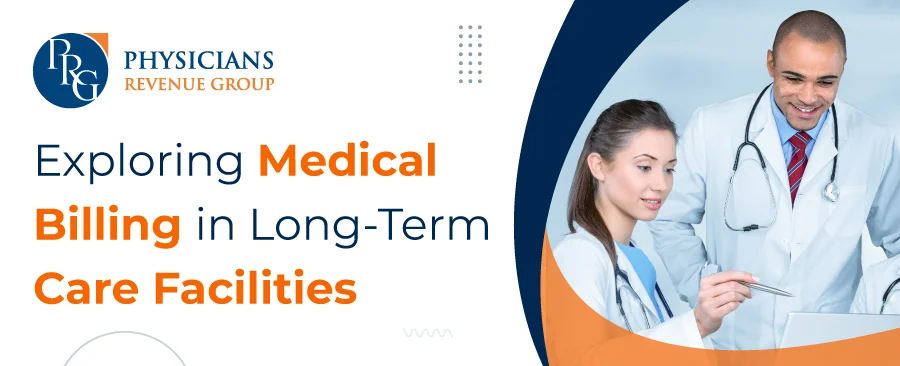
Email: info@prgmd.com | Call: +1 (630) 242-6474
Business hours: 9:00 to 5:00 | Monday to Friday
Email: info@prgmd.com | Call: +1 (630) 242-6474
Business hours: 9:00 to 5:00 | Monday to Friday

Table of Contents
ToggleEffectively managing processes of medical billing in long-term care facilities are one of the essential parts of running a successful LTC (long-term care) practice. Medical billing services for the long-term care entails understanding of intricacies of long-term care, starting from the initial patient registration to the final reimbursements. With that many processes in LTC cycles, it is quite difficult for practitioners to maintain and stay on top of all crucial details.
Knowing exactly how every step fits together and how to look for red flags in addition to looking for places to improve – can ensure that your LTC practice runs smoothly. Efficient running of LTC facilities leads to higher profits/reimbursements and also to better quality of care for patients.
Long-term care facilities in the US face multiple challenges for revenue cycle management optimization. Still, there are many employable strategies that can help in making medical billing in long-term care facilities successful, and these include the following:
Continuous monitoring of compliance regulations and industry standards is important for successful medical billing in long-term care facilities. The process includes regular and ongoing continuous audits of billing processes. All of that in addition to ensuring that the staff is well-aware of and trained over the compliance requirements.
Efficient cash flow management is vital for LTC facilities to ensure financial health and stability. The overall cash flow management involves effective monitoring of accounts receivable, management of expenses, collection of payments, and even maintaining satisfactory reserves.
For effectively managing the cash flow, the long-term facilities must have a workable and efficient revenue cycle process that considers the sources of revenues, including government-funded programs.
The denied claims add up and can easily become one of the major sources of lost revenue for the LTC facilities. Practical management of denied claims by identification of the reasons for denials and then effectively addressing those can help cut down on the losses, thus improving revenue.
The process can involve implementing procedures that ensure all claims are coded and submitted correctly by providing accurate information. All of this, in addition to the effective filing of appeals, whenever and wherever necessary.
The credentialing process entails the validation of a physician to determine whether or not they meet the set standards for providing clinical care. Here payers verify the following:
A modifier offers additional medical procedures, services, or supply information. All of this information is communicated through the modifiers without changing the medical codes’ meaning.
Share:
Categories
Recently Added

What is an ABN in medical billing?

What does a Clearinghouse do During Claims Submission?

What is EOR in Medical Billing?
We Would Love to Assist You!
We treat your data confidentially and don’t share any information with a third party.